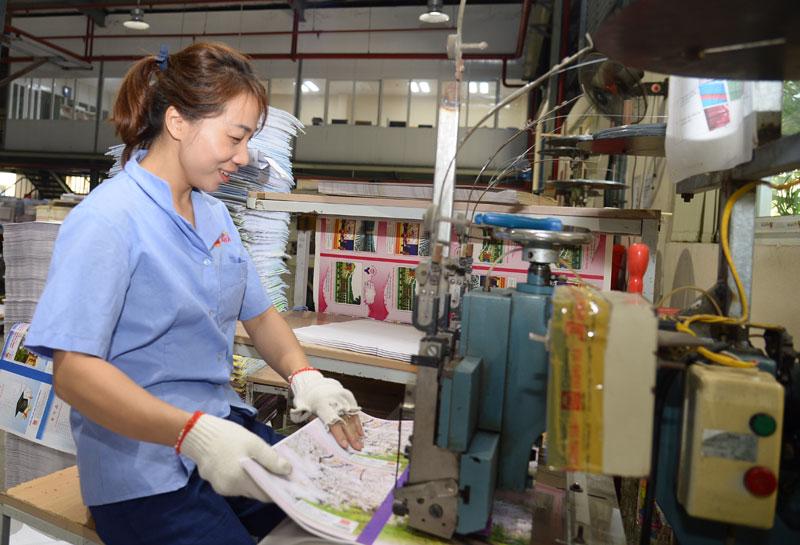ADB maintains Vietnam’s GDP growth forecast at 6.5% amid grim regional outlook
Vietnam’s economic growth will be driven by continued trade expansion, the faster-than-expected recovery of manufacturing, domestic travel, and the acceleration of public investment.
The Asian Development Bank in its latest economic outlook report continues to maintain Vietnam’s GDP growth forecast at 6.5% in 2022, and accelerate to 6.7% in the subsequent year.
| Production at Hong Ha Company in Long Bien District, Hanoi. Photo: Chien Cong |
The forecast shows Vietnam’s bright prospects at a time when the ADB has lowered its economic growth projection for developing Asia and the Pacific to 4.6% this year from the previous 5.2% in April due to slower expansion in China, more aggressive monetary tightening in advanced economies, and fallout from the Russia-Ukraine conflict.
Meanwhile, the bank also raised its forecast for inflation in the region, amid higher prices for food and fuel.
According to the report, Vietnam’s economic growth will be driven by continued trade expansion, the faster-than-expected recovery of manufacturing, domestic travel, and the disbursement of public investment.
Surging global commodity prices, especially global oil prices, would increase inflationary pressure, but the abundance of domestic food supply would help ease inflation in 2022.
The inflation forecast therefore remained unchanged at 3.8% for 2022 and 4.0% for 2023 compared to ADB’s projection in April and stays in line with the Government's target of 4% this year.
The ADB noted Vietnam’s economy, however, faces challenges similar to countries in the region from an unstable external economic environment, that may pose significant risks to its economic outlook.
Overall in the region, the report noted developing Asian and Pacific countries are continuing their recovery from the Covid-19 pandemic.
“The economic impact of the pandemic has declined across most of Asia, but we’re far from a full and sustainable recovery,” said ADB Chief Economist Albert Park. “On top of the slowdown in China, the fallout from the conflict in Ukraine has added to inflationary pressure that’s causing central banks around the world to raise interest rates, acting as a brake on growth. It’s crucial to address all these global uncertainties, which continue to pose risks to the region’s recovery.”
China’s economy is poised to expand by 4.0% this year, compared with an earlier forecast of 5.0%. ADB also lowered its growth outlook for India to 7.2% from 7.5% amid higher-than-expected inflation and monetary tightening.
Inflation in developing Asia and the Pacific is predicted to accelerate to 4.2% this year, compared with a previous forecast of 3.7%. However, inflation pressure in the region as a whole is still lower than elsewhere in the world.
For 2023, ADB lowered its economic growth projection for the region to 5.2% from 5.3%, while raising the inflation forecast to 3.5% from 3.1%.
Growth forecasts for some subregions were upgraded. The outlook for Southeast Asia was raised to 5.0% this year from 4.9% amid increased domestic demand due to more relaxed Covid-19 restrictions.













